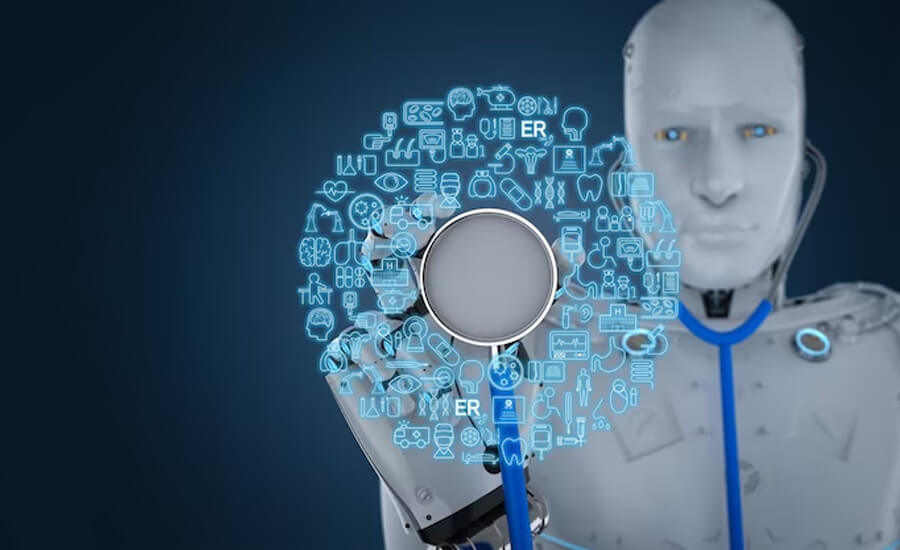Introduction:
Healthcare service providers face numerous daily tasks, including managing billing, claims, patient onboarding, test report collection, and prescription provision. These manual or off-the-shelf software-based processes can be time-consuming, complex, and error-prone. Compliance with regulations is crucial to avoid fines and legal action. However, with the advent of RPA technology, the healthcare industry has undergone a significant transformation. RPA enables healthcare firms to automate repetitive, labor-intensive tasks with minimal errors. RPA bots store, manipulate, and manage data, process transactions, connect with other devices, and generate expected results while avoiding errors.
Effective Use Cases of RPA in Healthcare:
1. Streamlining Patient Appointments:
By implementing RPA in appointment scheduling applications, healthcare firms can optimize patient appointments based on diagnosis, demographics, doctor availability, and other defined criteria. This results in improved patient satisfaction and efficient resource allocation.
According to a case study by an American Hospital, after implementing RPA for patient appointment scheduling, the hospital experienced a 30% reduction in appointment scheduling time and a 20% increase in patient satisfaction.
2. Faster Bill Processing & Settlements:
RPA bots accurately calculate bill amounts, including test costs, medication expenses, wardroom charges, and doctor fees. This automation significantly reduces the time spent on manual retrieval and management, leading to faster bill processing and settlements.
According to a study conducted by a US based Healthcare Services, implementing RPA for bill processing reduced processing time by 50% and decreased billing errors by 75%.
3. Quick Claim Management:
Healthcare firms can leverage RPA to expedite insurance claim processing. RPA bots efficiently process claim data, validate information, and streamline the claim submission process. This ensures faster reimbursement and improved cash flow.
In a report by an Insurance Company, implementing RPA for claim management reduced claim processing time by 60% and increased claim accuracy by 80%.
4. Managing Discharge Information:
RPA bots accurately follow discharge guidelines and send automated reminders to patients regarding upcoming doctor’s appointments, prescription pick-ups, and scheduled medical tests. This improves patient adherence to post-discharge care plans and enhances overall patient outcomes.
According to a study published in the Journal of Healthcare Management, hospitals implementing RPA for discharge information management saw a 40% reduction in missed appointments and a 30% increase in patient compliance.
5. Data Management during Audits:
Healthcare firms can use RPA-driven software to record data and generate reports, simplifying the audit process. RPA bots ensure accurate data collection, reduce human error, and enable efficient retrieval of audit-related information, leading to smoother compliance procedures.
A report by a renowned Audit Solutions revealed that healthcare organizations implementing RPA for data management during audits experienced a 40% reduction in audit time and a 30% decrease in compliance-related errors.
6. Managing High Volume Workflow:
RPA software efficiently manages and coordinates high volumes of healthcare operations & cases, including patient management, billing, records, and claims processing. It also facilitates remote monitoring, enabling real-time visibility and reducing the risk of errors or delays.
In a survey conducted by Healthcare Insights, healthcare organizations that implemented RPA reported a 30% increase in workflow efficiency and a 25% reduction in claims processing time.
Benefits and Outlook:
Implementing RPA in healthcare operations & processes not only enhances operational efficiency but also improves patient experiences, reduces employee costs, and increases revenue. Many healthcare organizations are actively exploring innovative ways to leverage RPA in their operations.
According to a survey conducted by a top Healthcare Insights, 85% of healthcare organizations that implemented RPA reported improved operational efficiency, while 70% experienced a decrease in administrative costs.
RPA technology offers several key benefits for the healthcare industry:
- Improved Accuracy: RPA bots perform tasks with high accuracy, reducing errors in critical processes such as billing, claims processing, and data management. This leads to improved data integrity and reduced financial risks.
- Enhanced Productivity: By automating repetitive and time-consuming tasks, healthcare professionals can focus on more strategic and patient-centric activities. RPA bots work 24/7, increasing productivity and allowing staff to handle complex cases and provide quality care.
- Cost Savings: RPA implementation can significantly reduce operational costs by minimizing manual labor, reducing errors that lead to rework, and optimizing resource allocation. Healthcare organizations can reallocate resources to areas that require more attention and generate cost savings.
- Regulatory Compliance: RPA technology ensures adherence to regulations and compliance requirements by accurately recording, managing, and reporting data. This reduces the risk of fines, penalties, and legal action, promoting a secure and compliant environment.
- Improved Patient Experience: Streamlined processes, such as appointment scheduling, discharge management, and timely reminders, enhance patient satisfaction and engagement. RPA-driven automation minimizes delays, improves communication, and ensures patients receive the right care at the right time.
The future of RPA in healthcare is promising. As technology continues to evolve, healthcare organizations are expected to leverage RPA in innovative ways. Advanced capabilities like cognitive automation, machine learning, and natural language processing will further enhance the efficiency and intelligence of RPA bots, enabling more complex and sophisticated tasks to be automated.
Conclusion:
Incorporating RPA technology into healthcare operations offers significant advantages, including streamlined processes, improved accuracy, cost savings, regulatory compliance, and enhanced patient experiences. AITA Consulting Services, with its expertise in RPA-powered solutions, can assist healthcare organizations in successfully implementing and maximizing the benefits of RPA. By automating tedious tasks and optimizing workflows, healthcare providers can focus on delivering exceptional care while driving operational excellence and revenue growth.
